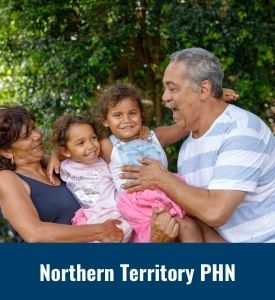
safeTALK NT PHN funded workshop – Tennant Creek
The NT PHN invites all professionals working in the primary health care sector to attend the half-day suicide alertness safeTALK workshop
safeTALK is a half-day alertness workshop that prepares anyone over the age of 15, regardless of prior experience or training, to become a suicide-alert helper. Most people with thoughts of suicide don’t truly want to die, but are struggling with the pain in their lives. Through their words and actions, they invite help to stay alive. safeTALK-trained helpers can recognize these invitations and take action by connecting them with life-saving intervention resources, such as caregivers trained in ASIST.
Since its development in 2006, safeTALK has been used in over 20 countries around the world, and more than 200 selectable video vignettes have been produced to tailor the program’s audio-visual component for diverse audiences. safeTALK-trained helpers are an important part of suicide-safer communities, working alongside intervention resources to identify and avert suicide risks.
Workshop features:
- Presentations and guidance from a LivingWorks registered trainer
- Access to support from a local community resource person
- Powerful audiovisual learning aids
- The simple yet effective TALK steps: Tell, Ask, Listen, and KeepSafe
- Hands-on skills practice and development
safeTALK helps expand the reach of suicide intervention skills in communities around the world
What can i expect at a safeTALK workshop?
safeTALK is a powerful experience. You can expect to feel challenged, empowered, and hopeful. Your safeTALK trainer will demonstrate the importance of suicide alertness and help you identify ways people invite help when they’re at risk. safeTALK’s steps provide a simple yet effective method to engage with people at risk and connect them with resources that can carry out a full-scale intervention. At the end of the workshop, you’ll have a chance to practice these skills firsthand. All in all, you can expect to leave safeTALK with practical knowledge of how to identify someone at risk and link them to life-saving resources.
This opportunity is open all professionals providing support to the community clinical and non-clinical.




Recent Comments